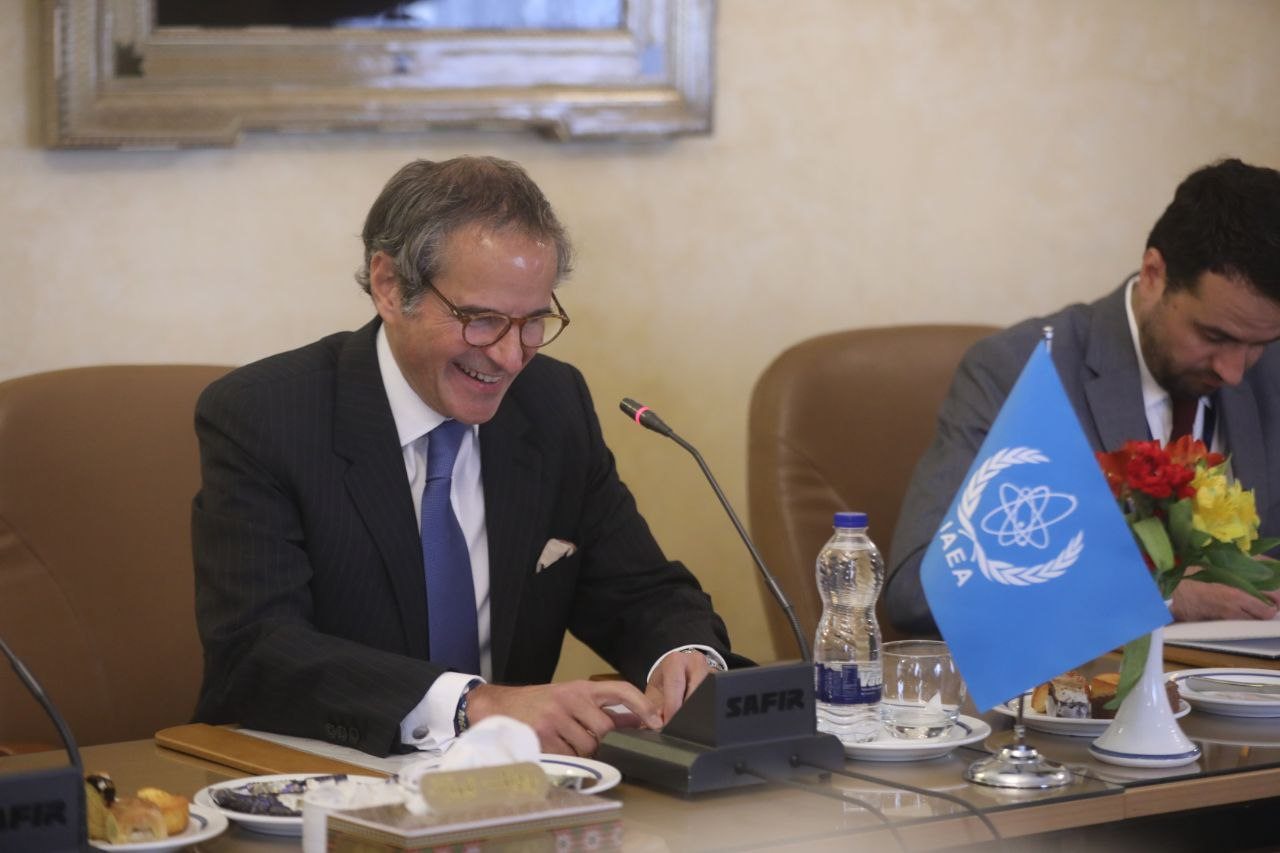Eslami made the remarks in a joint presser with Rafael Grossi, Director General of the IAEA, in Tehran on Tuesday, a day after the IAEA chief arrived in the Iranian capital for high-level talks with Iranian officials.
“Although Iran’s ill-wishers are always dissatisfied with the country’s interactions with the agency and seek to downplay the measures and decisions through stigmatization and destructive literature, both sides believe that the recent joint statement is a good basis for cooperation,” he said.
He lamented that the process of interaction between the two sides has slowed down over certain issues, but noted that the Islamic Republic and the agency have voiced hope to work based on the agreement.
The first part of our talks is about previous issues that had been finalized in the Joint Comprehensive Plan of Action (JCPOA) under PMD (Possible Military Dimensions), he said, dismissing those issues as highly “political” and “peripheral”.
In this regard, Eslami continued, the important issue is the remaining two places while the issues related to two other places have been resolved.

“The second part is about the existing situation and we should take mutual and coordinated measures for the existing shortcomings and expectations within the framework of the safeguards agreement and NPT and the considerations that the International Atomic Energy Agency (IAEA) has,” Eslami said.
He added that the third part is future steps and mutual expectations and the role of the IAEA director general, which can be effective in removing the obstacles that are mainly political.
“We agreed that to draft these three parts, the deputies of both sides should discuss the timelines and the details,” he further explained.
Eslami: IAEA must not take Israeli claims seriously
Another important issue is to be vigilant that the hostile actions of the Zionist regime against Iran’s nuclear program would not affect the two sides’ interactions, Eslami stated.
This is very important because the Zionist regime is the ring leader of these issues raised in the media, he added.
“At this point, when the nature of this regime has been revealed more than ever to the world and protests are taking place all over the world, we must pay attention to the fact that this destructive regime has been behind anti-Iran actions, and we should no longer use the Zionist regime’s remarks and positions as a criterion,” the AEOI chief maintained.
Elsewhere in his remarks, Eslami said Grossi’s presence in Iran is in line with the ongoing interactions between the two sides within the Non-Proliferation Treaty (NPT) and the safeguards agreement.
The Islamic Republic of Iran has not withdrawn from the JCPOA, Eslami said, adding that it was the United States that pulled out of the agreement, also known as the Iran nuclear deal.
The US has not fulfilled its commitments and has not allowed others to honor their commitments, he said, adding that three European countries also followed suit.
He noted that the strategic law to terminate the sanctions is the basis of Tehran’s nuclear measures and Grossi is aware of the considerations and framework.
“Our interactions are pursued based on the strategic law, the NPT and the safeguards agreement,” he underscored.
Considering his legal status and personality, the IAEA chief can play a good role in this regard, he underlined.
Resolving remaining issues requires serious efforts: Grossi
For his part, Grossi said that he held very important meetings with the top negotiator and the Iranian foreign minister during his two-day stay in Iran.
“We exchanged views on starting and strengthening relations between the two sides,” he noted. “Last year, we agreed on a statement concerning our future road, and cooperation in the areas of monitoring and safeguards.”
Resolving the remaining issues requires serious efforts from both sides, he said.
Grossi also said that despite the existing shortcomings, interactions are underway and that he presented a proposal that is the operational steps that will clarify the future path, adding that the two teams are currently in contact with each other to draw the future path.
According to the IAEA chief, the two sides do not intend to have a new document, but rather, will continue to cooperate based on the March document, which has the capacity to resolve the remaining issues of the two sides.
Regarding Iran’s concern about Israel’s destructive role in its nuclear program, he said the IAEA does not pay attention to foreign actors and only focuses on its interactions with Iran.
At the same time, Grossi said the IAEA pays attention to regional interests and security.
He said the agency strives to remove any doubts about Iran’s nuclear program and to move forward in the right direction with the Islamic Republic.
7129**9376**4354
